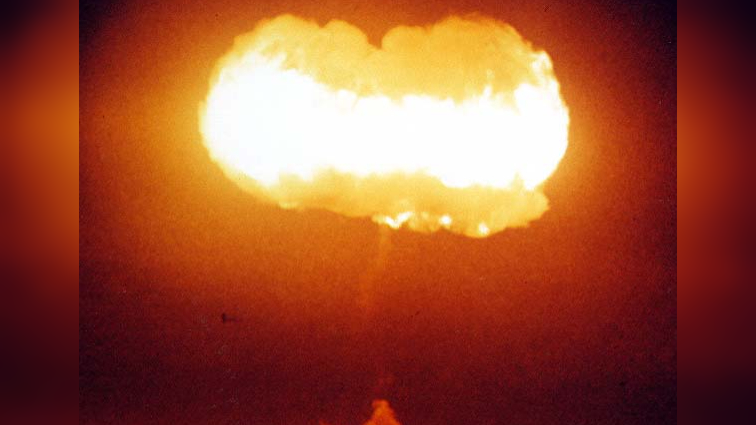
This story was originally published by Real Clear Wire
By Newt Gingrich
Real clear wire
It is vital that Americans take nuclear war seriously.
For the past three and a half decades, since the collapse of the Soviet Union in 1991, Americans have been relaxing and acting as if they were safe from nuclear events.
When President Bill Clinton and I established the Hart-Rudman Commission in 1998, we hoped to profoundly rethink American security strategies. The committee was brilliantly chaired by General Charles Boyd, and produced an impressive report.
We have warned that the greatest threat to the United States is a nuclear attack on an American city – most likely by a terrorist group. We have proposed creating a Department of Homeland Security capable of handling three simultaneous nuclear events. This would have been a department with the discipline and training we associate with military organizations or first-class fire departments.
As a sign of how little people understand the danger of nuclear weapons, the administration has degenerated into a bureaucratic mess characterized by massive inefficiency. Today, it cannot deal with unarmed civilians at the border. It would likely be completely unable to handle a single nuclear event (let alone three simultaneous events).
However, nuclear war became increasingly possible. When dealing with the Soviet Union, it was perceived that a mutually assured destruction strategy would be able to maintain a balance of deterrence to keep nuclear war at bay. Neither country would launch a nuclear weapon, because there was a virtual certainty of annihilation. In many respects, Mutually Assured Destruction resembled Abraham Lincoln's response to the challenge of a duel. Lincoln selected the guns three feet away, and the other man backed away.
But now we have countries getting nuclear weapons that may not care if we retaliate.
It is possible that the Iranian theocratic dictatorship would accept the exchange of Tehran for Tel Aviv as an additional advantage on ideological grounds.
We have no understanding of the values and thought processes of Kim Jong Un and his leadership (including his sister who is supposedly more hardline than him). In the face of South Korea's growing economic and technological achievements and quality of life, it is possible that the North Korean regime is willing to risk a nuclear attack as the only element in which it has an advantage.
Pakistan suffers from instability, and its old rival, India, is growing steadily. This could lead to nuclear conflict if Pakistan becomes threatened by India's size – or if India responds forcefully to the perceived Pakistani threat. Ultimately, a nuclear conflict could occur in the region as a result of pure misunderstanding.
The Russian dictatorship is a dangerous combination of Soviet training (Vladimir Putin was a KGB officer and remains fiercely loyal to the spirit of the Soviet Union) and great Russian nationalism. Moreover, the depth of the corruption of Putin and his allies – and the severity of the brutality of his response to domestic opponents – creates a psychological environment in which the use of nuclear weapons as a substitute for defeat becomes increasingly possible. Putin himself has proposed the use of tactical nuclear weapons. More recently, a close ally would use nuclear weapons proposed in London and Washington if Russia were forced to return any territory in Ukraine.
Finally, the most rational and stable country among our nuclear-capable adversaries is communist China (this alone should tell us how unstable the world has become). It is possible that with a declining population, a rapid deterioration of the economy, and a growing sense of global frustration and isolation, General Secretary Xi Jinping may decide to risk an invasion of Taiwan or force a crisis in the South China Sea. The conflict could spiral out of control remarkably quickly.
In the face of this reality, we need to reconsider Herman Kahn's classic study.Thinking about the unthinkable.” To understand the severity of a nuclear attack, it is also helpful to go back 70 years to Philip Wylie's astonishing novel “tomorrow.” It is the story of a nuclear attack on a single city and the power of nuclear weapons to destroy life and civilization. This was the book that convinced me as a high school student that we had to do almost everything to avoid nuclear war—and survive it if it happened.
I recently re-read Stephen Hunter's 1989 novel ““The day before midnight” In which a Russian nationalist like Putin remarkably seizes an American intercontinental ballistic missile silo in an attempt to start a nuclear war.
If we took nuclear war seriously, we would do three things immediately:
First, we will build a high-quality Israeli missile defense system at all levels. You will eliminate the missiles as they leave their silos, during their time in space to re-enter, and finally at a defense point. President Ronald Reagan proposed the Strategic Defense Initiative in 1983. It was derided as Star Wars. Its technological heirs have saved tens of thousands of Israeli lives. The global version could save hundreds of millions of lives.
Second, we must develop a local survival system capable of responding to three or more nuclear events – with hospitals, security, construction workers, and everything else needed to minimize loss of life. This will include storing radiation survival medications, food, water, etc.
Third, we will have an extensive program to harden our entire system against a potential EMP attack. As Bill Forstchen wrote in his wonderful book, ““In one second” An EMP attack would be devastating and destroy civilization.
We were surprised at Pearl Harbor. We were surprised on September 11, 2001. We cannot afford to be surprised by a nuclear attack.
For more commentary from Newt Gingrich, visit Gingrich360.com. Also subscribe to the Newt's World podcast.
This article was originally published by RealClearPolicy and made available via RealClearWire.

